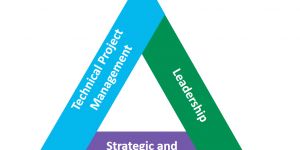Business coaching for a project manager is becoming a key aspect of the business.
John Whitmore, recognized by everyone as the founding father of Coaching, defined it as the ability to
“Coaching is unlocking people’s potential to maximize their own performance. It is helping them to learn rather than teaching them.”
CONTENT INDEX
Business Coaching: Introduction
More and more frequently, the Project Manager deals with events where problems have to be solved, ideas presented and results presented.
The project manager spends most of his time communicating with team members and stakeholders, internal (at all levels of the organization) or external to the project.
Moreover, we should not forget that he must also motivate the team every day.
For instance, empowering and encouraging team members to improve their skills, attitudes and empathy in order to achieve better results has the same importance as solving problems or communicating in the right manner with stakeholders.
In addition, the project manager needs strategic skills in decisions and behaviors in order to achieve the objectives of the project.
In short, today more than ever, the Project Manager needs to create a work team and “lead” it to success.
This means knowing how to delegate, supervise, but also motivate.
In short, the role of the project manager for his Team is that of a real Coach that not only dictates the patterns but that also encourages, helps, supports, and gives rewards.
For these reasons, a good method that the project manager can use in his own routine is to instruct other people in the project. He can also use different tools that can help him improve goals and communications.
Business Coaching: the effects
According to a research done by the University of Amsterdam (Theeboom, Beersma and Vianen, 2013), business coaching has significant positive effects on
- Performance an skills (60%),
- Welfare(46%),
- Coping (43%),
- Work attitudes (54%)
- Achievement of the objectives (74%).
In general, their research found out that coaching in organizations is an effective tool that improves the functioning of individuals within companies.
Moreover, according to another study by Bersin of Deloitte (Garr, 2011), organizations that effectively prepare managers for coaching have 130% more chance of achieving more satisfactory business results.
Business Coaching: the skills to be improved
Based on the above, project managers should improve at least four skills to become effective coaches.
Four are the skills that could help them when they interact with other people:
- Active listening;
- Powerful questions;
- Direct communication;
- Awareness creation.
Business Coaching: Active Listening
With active listening we refer to a specific attitude.
[av_notification title=” color=’blue’ border=’solid’ custom_bg=’#444444′ custom_font=’#ffffff’ size=’large’ icon_select=’yes’ icon=’ue80b’ font=’entypo-fontello’ av_uid=’av-1tz1v9′]
Strive to listen not only to the words that another person is saying, but also try to understand the complete message.[/av_notification]
In order to do this, the person must pay particular attention to the other.
It sounds easy, but it is not!
The situations we live have accustomed us to listen only on a superficial level.
We take the words of other people, but in most cases, we do not contextualize them, therefore we lose the nuances and key aspects of the message.
This is why, if the project manager has at heart the success of the project, he should listen to a deeper level.
This means to listen to the meaning enclosed behind the words that are said.
Becoming active listeners takes a lot of effort and training.
But there are small tricks to start with.
Active listening and really transmitting the perception to be actively listening are steps that can be improved.
Here are some “exercises” to improve active listening:
- pay attention, looking directly the talker,
- set aside distracting thoughts and avoid being distracted by the surrounding environment,
- show that you are listening with the use of a smile or other facial expressions and encourage the speaker to continue by using small verbal comments such as “yes” and “mh”.
- provide feedback by summarizing the concept of the talker and by asking questions to clarify some points.
- postpone judgments and personal comments at the end of the speech (even if the temptation is strong!). Allow the talker to finish each point before asking questions and not interrupt him/her with contrary arguments.
In conclusion, the rule of common sense always applies.
You should respond appropriately, treating others the way you would like to be treated 🙂 .

Business Coaching: Powerful Questions
What are powerful questions?
These are the questions asked to make the interlocutor reflect. Those questions have the ability to create different perspectives and broaden horizons that had not previously been taken into account.
A powerful question brings clarity, action, discovery, intuition or commitment.
It creates more possibilities, new learning or a clearer vision.
Powerful questions cause people to think for themselves. And when you think of yourself, you generally learn more.
The questions are powerful when they impact people and bring them to think.
They are usually open questions and they generally start with the word “what” or “how” and are very direct on the subject.
Moreover, a powerful question gives the person the awareness of the topic and the opportunity to explore it further.
It brings the person to think outside the box, helping to change perspective.
Sometimes powerful questions can cause a bit of discomfort, but a powerful question should be free of judgment. It must simply be a curious question.
If project managers learn to ask powerful questions, this will help them increase their personal and business communication skills.
The key is to always be genuinely curious about the person you are talking to.
Business Coaching: Direct Communication
Direct communication is the ability to communicate effectively during a conversation and to use a language that has the most positive impact on a person.
Direct communication is clear and articulated, it shares and provides feedback.
It is important to reformulate and articulate the concept in order to help people see from another perspective.

Moreover, project managers should use appropriate language that is respectful to the person, for example, words that are not sexist, non-racist, non-technical, not jargon.
In addition, the use of metaphors, stories and analogies should be used to help illustrate a point or give a verbal picture and thus help communication.
Business Coaching: Creating awareness
Creating awareness is the ability to accurately integrate and evaluate multiple sources of information and to help people who are talking to the project manager to achieve the expected results.
A project manager plays an important role in creating the conditions for raising awareness. He must ensure that people can bridge the gap between where they are now and where they want to be.
The project manager is responsible for creating a support environment in which people can explore and discover their skills.
Once people know something, the project manager should help them take action in order to allow them to achieve better and more successful results for the project.
Project managers are persons that are organized, passionate and goal-oriented.
They play a strategic role and are the keys of change for their organizations.
They pursue learning, implement changes and achieve success.
In addition, they cultivate the interpersonal skills necessary to develop trust and communication among project stakeholders.
Have you ever applied these coaching techniques? Are there any others that are important to you? Write us your opinion in the comments.




